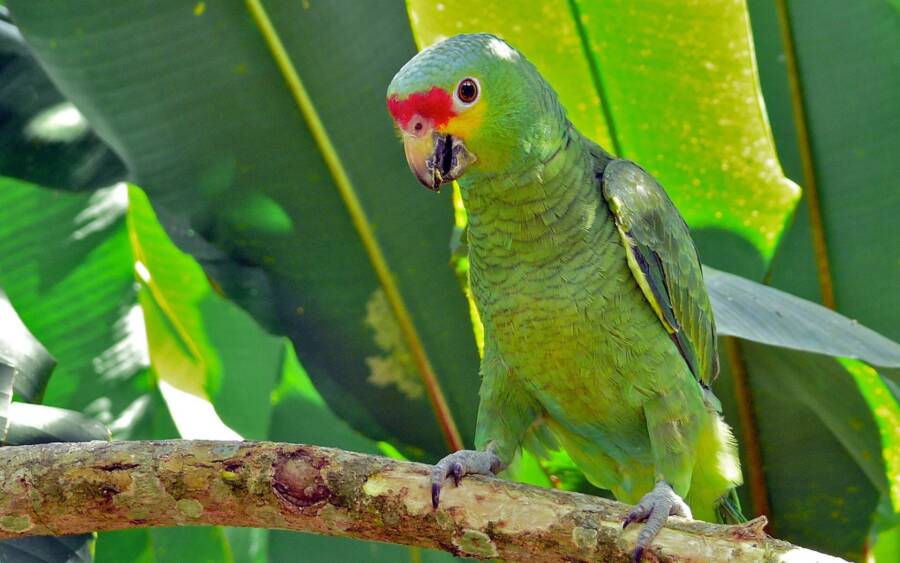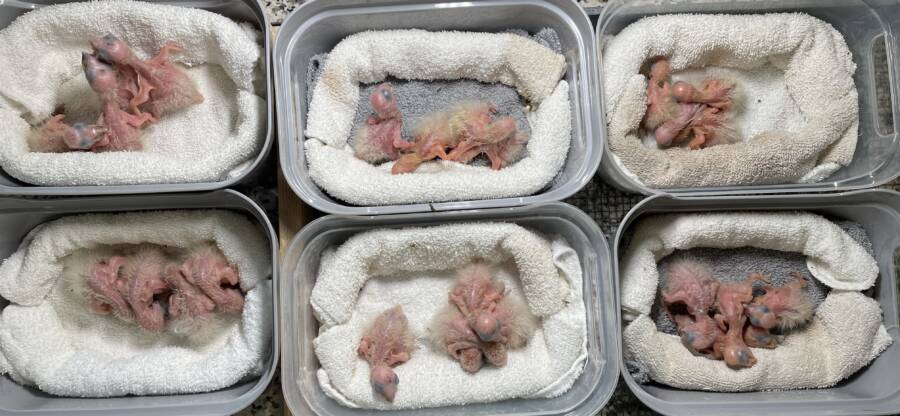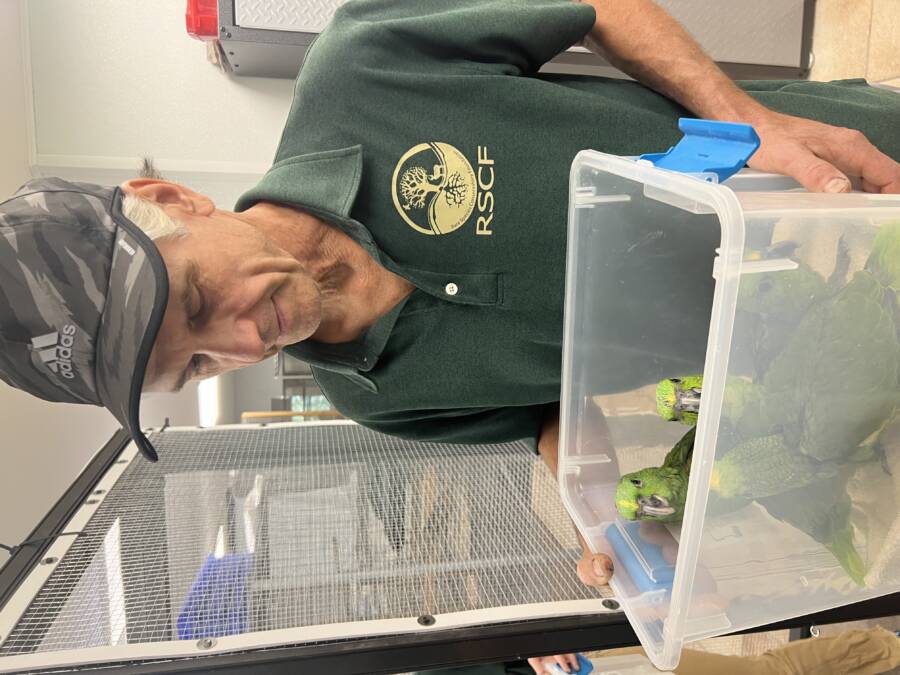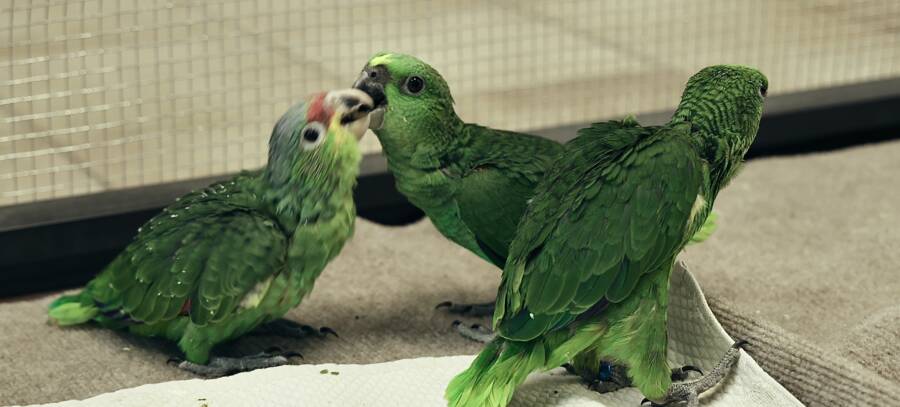The trafficker was caught in Miami while trying to transport 29 amazon parrot eggs from Nicaragua to Taiwan.

National Audubon SocietyDNA revealed that the eggs were from the yellow-naped amazon and the red-lored amazon, pictured here.
While examining passengers’ bags at Miami International Airport, U.S. Customs and Border Protection officers suddenly heard a strange sound: chirping. The officers looked closer and discovered a man was smuggling parrot eggs. The eggs, they found, were starting to hatch.
According to the Associated Press, the smuggler, a Chinese national named, Szu Ta Wu, was stopped at a checkpoint as he attempted to change flights between Managua, Nicaragua, and Taiwan. U.S. Customs and Border Protection officers asked him to explain the sound coming from his luggage, and Wu revealed an egg. Upon closer inspection, the officers found two dozen more eggs — and that they were starting to hatch.
In all, Wu had 29 eggs with him. He admitted that he didn’t have documentation to transport the birds and claimed that a friend had paid him to transport them from Nicaragua to Taiwan. Meanwhile, officers rushed to save the birds, seven more of which started to hatch.

Florida International UniversityIn the end, 26 of the 29 eggs hatched, and 24 of the 26 chicks survived.
As USA Today reports, the chicks — and soon-to-be chicks — were placed in the care of the Rare Species Conservatory Foundation (RSCF), which is associated with Florida International University (FIU).
“At that point we were off to the races,” Paul Reillo, a Florida International University professor and the director of the foundation, told the Associated Press. “We’ve got all these eggs, the chicks are hatching, the incubator’s running and by the time it was all said and done, we hatched 26 of the 29 eggs, and 24 of the 26 chicks survived.”
To USA Today, Reillo added: “It’s not easy to assemble a group of this many eggs synchronized to all hatch around the same time. The total elapsed time from the first to last hatching was just 10 days.”
At first, no one knew what kind of birds Wu had been smuggling. Wu claimed he didn’t know what they were, and hatchlings have no feathers, making it difficult for Reillo and the others to identify them. Eventually, they tested DNA from the birds’ egg shells. They determined that the parrots were of two species: the yellow-naped amazon and the red-lored amazon.
Yellow-naped amazon parrots are endangered and prohibited from international trade, according to a statement from FIU, but their beauty and intelligence make them among the most commonly trafficked birds. These birds were poached straight from their nests.

Florida International UniversityThe surviving parrots are so far flourishing under the close eye of caretakers like Reillo.
“They are hand-raised babies,” Reillo told the Associated Press. “They’ve never seen mom and dad; they’ve been raised by us since they hatched.”
So far, the parrots seem to be doing well. When people approach their cages, they bob their heads and chirp. They’ll soon transition to a diet of food pellets and fruit, and they’re expected to start flying. But Reillo warns that they could have suffered a different fate.
“The vast majority of these trafficking cases end in tragedy,” he said. “The fact that the chicks were hatching the first day of his travel from Managua to Miami tells you that it’s extremely unlikely that any of them would have survived had he actually gotten all the way to his destination in Taiwan. That would have been another 24 to 36 hours of travel.”

Florida International UniversityThe parrots would have likely perished during the journey had they not been rescued in Miami.
His next task is to find a suitable home for the parrots, who can live up to 70 years. USA Today reports that it’s likely not possible to return them home to Central America, as they’ve been hand-reared and political issues would complicate their repatriation.
“Parrots live a long time. They are sentient creatures. They’re highly intelligent, very social, and these guys deserve a chance,” Reillo said. “The question will be where will they wind up? What is their journey going to be? It’s just beginning.”
The parrots’ journey forward may be unclear, but authorities have a better idea of what awaits their smuggler. Wu has pleaded guilty to wildlife smuggling and could face up to 20 years in prison.
After reading about the parrot smuggler caught when the eggs he was transporting started to hatch, learn about the Kakapo, the New Zealand “owl parrot” on the brink of extinction. Or, see why Alex the parrot may have been the world’s smartest bird.





